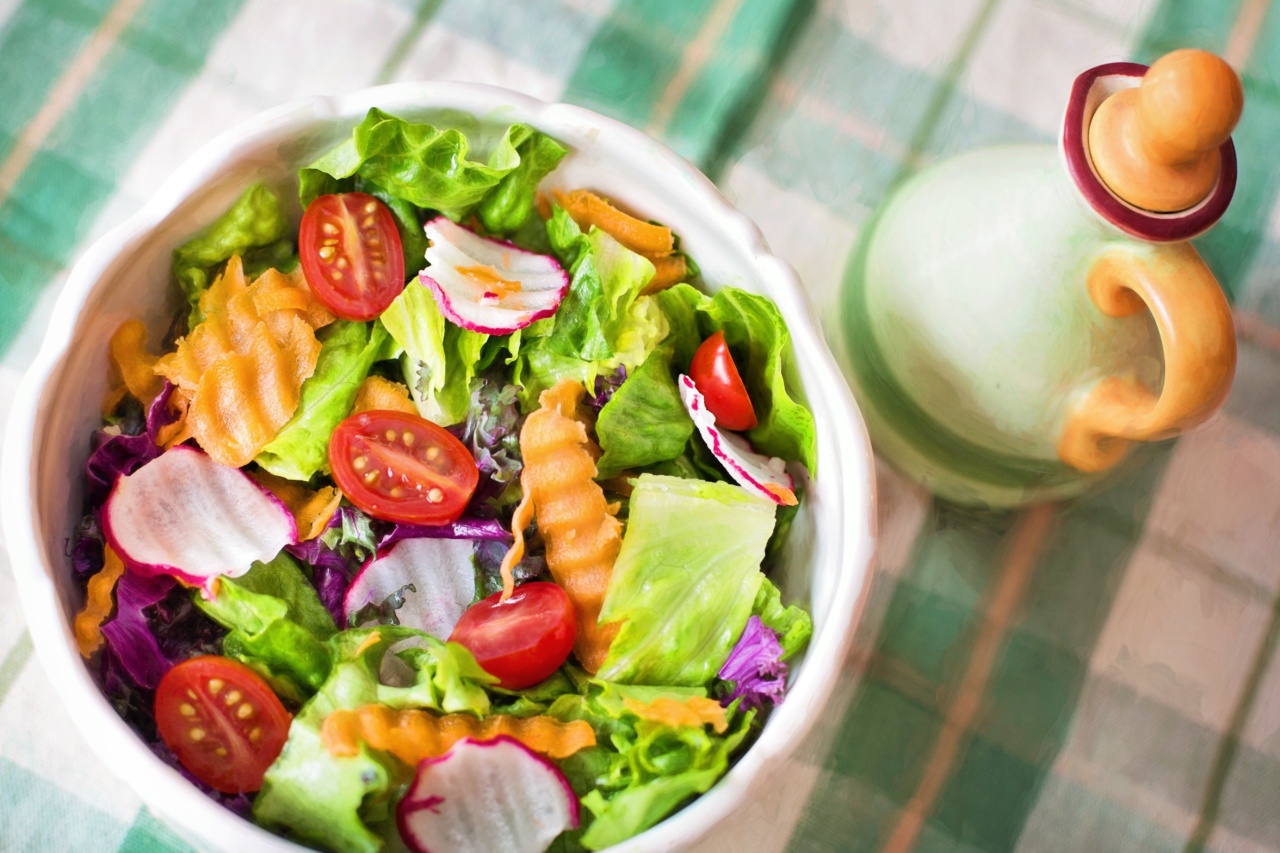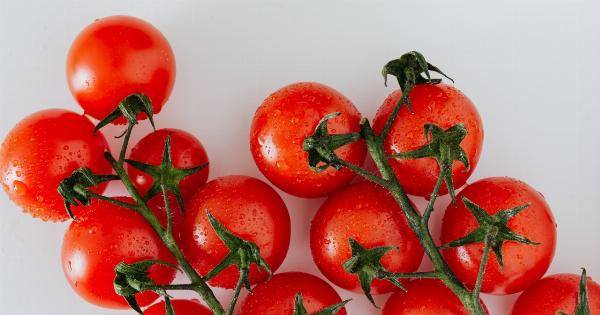Vegetarian diets have gained popularity in recent years due to their potential health benefits. These diets are associated with lower rates of obesity, heart disease, high blood pressure, and type 2 diabetes.
However, concerns have been raised about the link between vegetarian diets and an increased risk of breast cancer. In this article, we will explore the scientific evidence to determine whether a vegetarian diet can indeed increase the risk of developing breast cancer.
Understanding Breast Cancer
Before delving into the meat of the matter, let’s first understand what breast cancer is and how it develops. Breast cancer is a type of cancer that occurs when abnormal cells in the breast begin to grow uncontrollably.
These cancerous cells can invade nearby tissues and spread to other parts of the body.
Key Risk Factors for Breast Cancer
Several risk factors have been identified for the development of breast cancer. These include:.
1. Genetics and Family History
Having certain genetic mutations, such as BRCA1 and BRCA2, can significantly increase the risk of breast cancer. Additionally, if you have a first-degree relative (parent or sibling) who has had breast cancer, your risk may also be higher.
2. Age
The risk of breast cancer increases as you get older. Most breast cancers are diagnosed after the age of 50.
3. Reproductive Factors
Factors such as early menstruation (before age 12), late menopause (after age 55), never having children, or having your first child after the age of 30 can increase the risk of breast cancer.
4. Hormonal Factors
Exposure to hormones, either naturally or through hormone replacement therapy, can affect the risk of breast cancer.
Prolonged use of oral contraceptives and postmenopausal hormone therapy with estrogen plus progestin have been linked to a slightly increased risk.
5. Alcohol Consumption
Drinking alcohol in any amount increases the risk of developing breast cancer. Even moderate consumption can have a detrimental effect.
Evaluating Vegetarian Diets and Breast Cancer Risk
Now that we have established the primary risk factors for breast cancer, let’s examine the possible connection between vegetarian diets and breast cancer risk.
Several studies have investigated the association between plant-based diets and breast cancer incidence.
The Protective Effect of Plant-Based Diets
Many studies suggest that a plant-based diet can provide protective benefits against breast cancer. Plant-based diets are rich in fruits, vegetables, whole grains, pulses, and nuts.
These foods are high in dietary fiber, antioxidants, vitamins, minerals, and phytochemicals, known to have cancer-fighting properties.
A review of studies published in the American Journal of Clinical Nutrition found that higher consumption of fruits and vegetables was associated with a reduced risk of breast cancer.
The study also showed that plant-based diets contribute to maintaining a healthy weight, another significant factor in reducing breast cancer risk.
The Role of Soy in Vegetarian Diets
Soy products, such as tofu, tempeh, and soy milk, are common sources of protein in vegetarian diets. Concerns have been raised about the potential estrogenic effects of soy and its impact on breast cancer risk.
However, extensive research indicates that moderate soy consumption is safe and may even have a protective effect against breast cancer.
A meta-analysis published in the Journal of the National Cancer Institute revealed that soy intake was associated with a reduced risk of both pre- and postmenopausal breast cancer.
The Impact of Dairy and High-Fat Foods
While vegetarian diets exclude meat, they can still include various dairy products, such as milk, cheese, and yogurt. Some research suggests that high intake of dairy and high-fat foods may increase the risk of breast cancer.
A study published in the International Journal of Epidemiology found that postmenopausal women who consumed high amounts of high-fat dairy products had a slightly higher risk of breast cancer.
However, the study did not establish a significant association between dairy intake and breast cancer risk in premenopausal women.
Importance of a Balanced Vegetarian Diet
It is essential to note that not all vegetarian diets are the same. Eating a balanced vegetarian diet is crucial for obtaining adequate nutrients and reducing the risk of breast cancer.
Consuming a variety of plant-based foods, including a mix of fruits, vegetables, whole grains, legumes, nuts, and seeds, ensures a well-rounded intake of essential nutrients, such as vitamins (including vitamin D), minerals (including calcium), and omega-3 fatty acids.
Furthermore, it is crucial to limit the consumption of processed foods, sugary beverages, and highly refined grains, as these have been associated with an increased risk of various diseases, including certain types of cancer.
Conclusion: A Vegetarian Diet and Breast Cancer Risk
Based on the available scientific evidence, it appears that a well-planned and balanced vegetarian diet can actually reduce the risk of breast cancer.
The consumption of plant-based foods, with their array of beneficial compounds, offers protection against this prevalent disease.
However, it is essential to not view vegetarianism as a standalone solution.
Maintaining a healthy lifestyle by incorporating regular physical activity, limiting alcohol consumption, avoiding smoking, and managing stress are all crucial in reducing breast cancer risk.
If you are considering adopting a vegetarian diet or have concerns about breast cancer, it is advisable to consult with a healthcare professional or a registered dietitian to ensure you are meeting your nutritional needs and maintaining overall health.

























